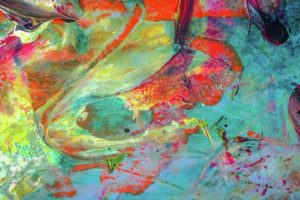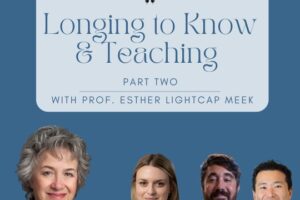In preparation for a spiritual retreat I, well, am currently taking as I write this, I read Discovering Lectio Divina: Bringing Scripture into Ordinary Life by James C. Wilhoit and Evan B. Howard (2012, Kindle edition). As I have been on this half-day retreat, praying and thinking back over my spiritual autobiography, I can see how the book I chose (with the prompting of the Holy Spirit, I believe) is a necessary and logical next step in applying what I realized in the autobiographical reflection: I need to spend more time with God prayerfully meditating on His Word. That practice has been almost absent from my life lately, and I feel the effects of my dys-lectio.
My great hope is that you can look at this post and say with total honesty, “I have no idea what you’re talking about! I get to spend devotional time with God everyday and have been so blessed as I have set aside that time.” If you can say that, I am sincerely happy for your situation. Would that we all could experience that reality. I’m guessing, though, that many more of you can relate to my statement about needing to spend more time with God. I say needing because there is a real thirst that we have at the core of us, waiting to be quenched by something. It’s not just a matter of want, but a genuine and felt need that we have for our unsettledness to be answered in some way.
Wilhoit and Howard point out that we all thirst. Soul thirst, a deep sense of “unsettledness,” is not dysfunction but a common human experience. “The question then is not ‘Are you thirsty?’ but ‘What are you doing with your thirsts?’ What we do with our unsettledness sets the course of our lives,” they write (Loc. 110). We may join the majority of people and choose to satisfy our thirsts with things that, according to Christian philosopher David Naugle, can be “summarized under three headings: the narratives of sensualism (sex, food, fashion), materialism (money, wealth, possessions), and egotism (achievement, prestige, power)” (Philosophy: A Student’s Guide, p. 68). But we who profess Christ know that the “world’s true story… is about God and creation, humanity and sin, Jesus and redemption” (ibid.).
So, if we have this soul thirst, and a desire to live in, and lean into, the only truly true metanarrative, “How do we deal with our deepest thirst?” According to Wilhoit and Howard, “We plant ourselves by the streams of living water. We meditate on Scripture” (Loc. 149). That’s what lectio divina (“divine reading”) is. It’s the practice of meditating on Scripture prayerfully, with the hope of being connected with God and thus transformed. “Lectio divina is part of the curriculum to grow in Christlikeness…employ[ing] the Scriptures as a doorway into transforming intimacy” (Loc. 72, 98).
The authors have some very good practical tips for how to engage in this prayerful practice, which I’ll delve into more deeply in a few weeks. But one tip to get you started, should you be joining me in a renewed commitment to meditating on God’s word: don’t get too flustered when your brain didn’t get the memo about it being a “quiet time.” As your mind becomes cluttered with to-do list type thoughts, just jot those down on a piece of paper and mentally set them aside. It seems to be a common situation amongst those new (or returning) to the habit of solitude.
Just as an encouragement to those of us who are reclaiming this practice, though there are obstacles to carving out such a space in our lives: those who “delight in the law of the LORD, meditating on it day and night…are like trees planted along the riverbank, bearing fruit each season. Their leaves never wither, and they prosper in all they do” (Psalm 1:2-3). Amen.





Leave a Reply
Your email is safe with us.